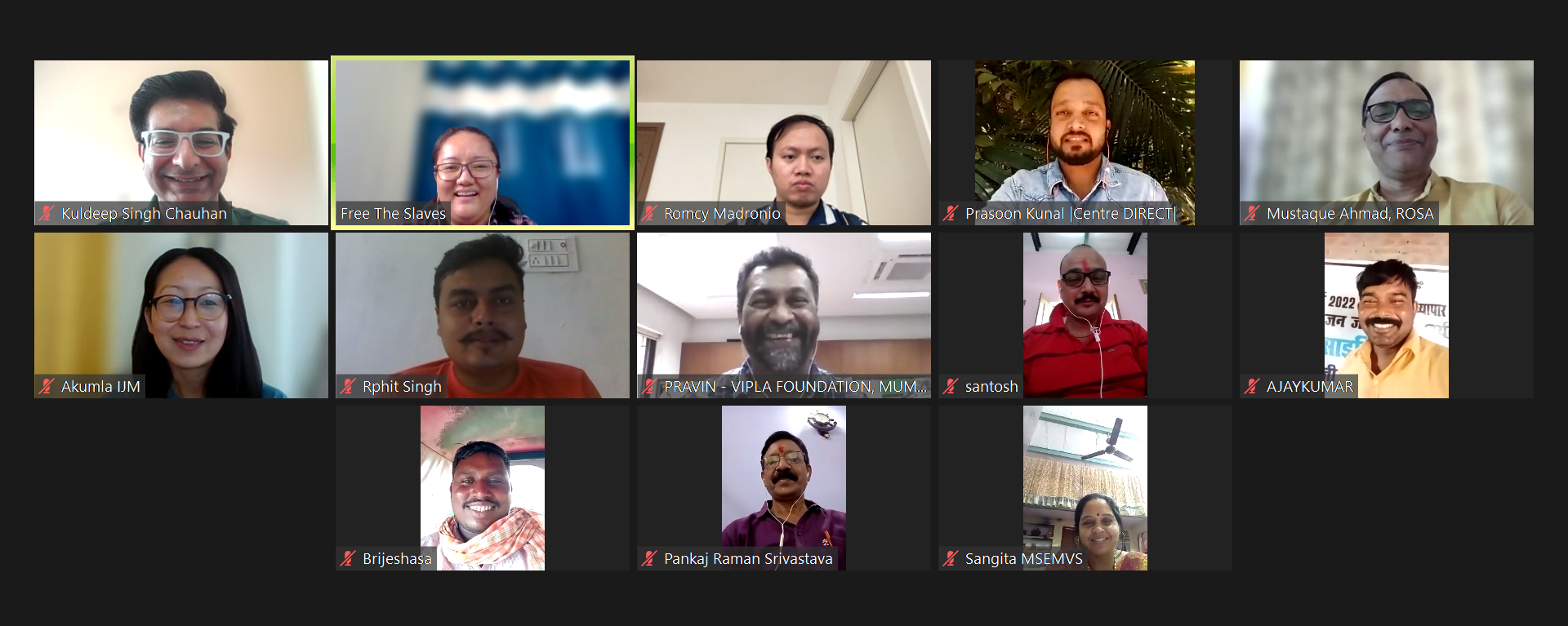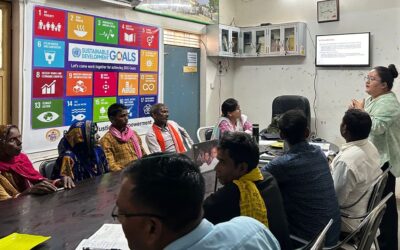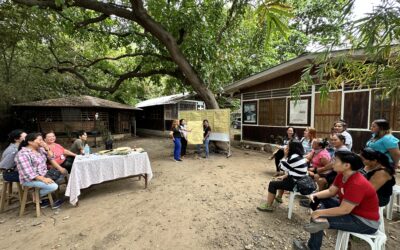Community-based solutions to modern slavery
Currently, more than 50 million people are afflicted by modern slavery, and millions more are at risk. It is vital that effective community-based methods be brought to scale as rapidly as possible. To that end, the Free the Slaves developed the Community Liberation Initiative (CLI). The CLI teaches the knowledge and skills necessary to develop and implement community-based anti-modern slavery programming.
The goal of the CLI is to accelerate the application of community-based approaches to the eradication of human trafficking and modern slavery and to ensure that these practices are suitably adapted to the context of local communities. CLI workshops facilitate the transfer and application of knowledge and skill to local Civil Society Organizations. These organizations, in turn, implement community-based models to end slavery and equip their communities to recognize slavery and conditions of vulnerability that lead to modern slavery.
The CLI focuses on four key pillars of successful anti-modern slavery interventions.
1. Educating and Mobilizing Vulnerable Communities,
2. Survivor Liberation, Care, and Reintegration,
3. Strengthening the Rule of Law,
4. Ensuring Access to Social and Economic Services.
Each of the four modules in the series gives participants the opportunity to learn tried, tested, and proven methodologies for implementing community-based responses to modern slavery.
Online CLI workshop in India
Free the Slaves Asia team recently facilitated an online workshop covering Module One of the CLI. Tsering Diskit facilitated the five-day workshop with assistance from Kuldeep Singh Chauhan and Romcy Madronio. The participants in the training were all representatives of grassroots-level CSOs/NGOs from various parts of India. The organizations participating in the workshop work in fields like education, child labor, forced and bonded labor, and anti-sex trafficking.
Frontline workers are the link between communities vulnerable to slavery and organizations working to end slavery. These frontline workers are responsible for awareness generation and capacity building in their communities. Module 1 of the CLI defines human trafficking, modern slavery, and other key terms and shares the history of human trafficking and slavery. Participants learn to assess and map vulnerability factors in their communities and recognize indicators of human trafficking and modern slavery.
The interactive workshop taught frontline workers practical steps to respond to trafficking. They then collaborated with their peers to apply what they learned to the context of the communities they serve. The participants also learned about utilizing trauma-informed care practices when interacting with survivors of human trafficking and slavery.
The interactive workshop environment allowed participants to share their experiences and best practices they had found to be successful.
Some of the challenges these organizations face in their communities are:
lack of awareness among stakeholders about bonded labor cases,
survivors’ lack of understanding about the laws and government programs related to bond labor that are available to them,
absence of a proper system to track cases and benefits available to the survivors of bonded labor.
The participants also shared that the local stakeholders like the Panchayati Raj Members (rural community governments), self-help groups, and village committees play a vital role in mapping vulnerabilities and spreading awareness about modern slavery. They also shared how they, with the support from the stakeholders, conduct trainings and camps to build vigilance mechanisms at the community level to prevent human trafficking and slavery.
Quotes from workshop participants.
Rohit Singh (ADITHI) – “The training was very informative and interesting; our organization ADITHI has already been working with FTS on the Community Maturity Toolkit, and we find it a very useful tool. We have been using the CMT for quite some time in all our projects, and it is one of the most effective ways to track impact.”
Sanjay Kumar (Srijan Foundation) – “This training was very helpful for me as I am designing a new program for my organization. The session on community mobilization was the most helpful one as it laid out the map detailing how to connect with the community and successfully implement a project with the community members. I am excited to learn that FTS has three more modules with knowledge and information on ending human trafficking and slavery. They’ll soon be conducting offline workshops on those as well”.
Demand for more workshops
Many of the other participants also requested the team to conduct in-person training to improve participants’ opportunities to apply the material in collaboration with their peers.
These testimonies show that these workshops are beneficial for grassroots organizations and will help the participants address the issues of human trafficking and modern slavery more effectively in their communities. The knowledge assessment conducted before and after the workshop shows that the participants increased their knowledge of human trafficking and slavery and effective methods of reducing vulnerability to slavery in their communities.




